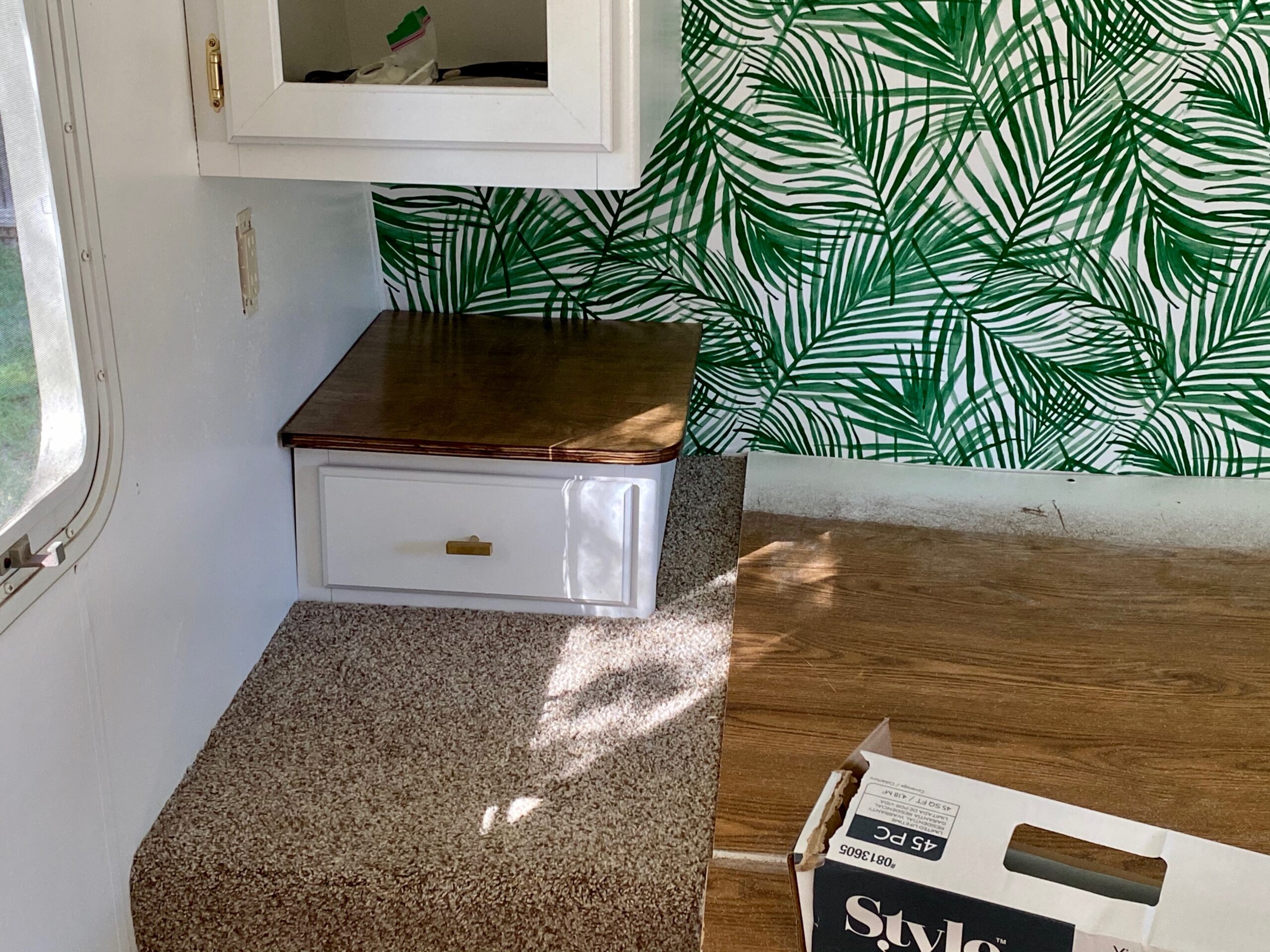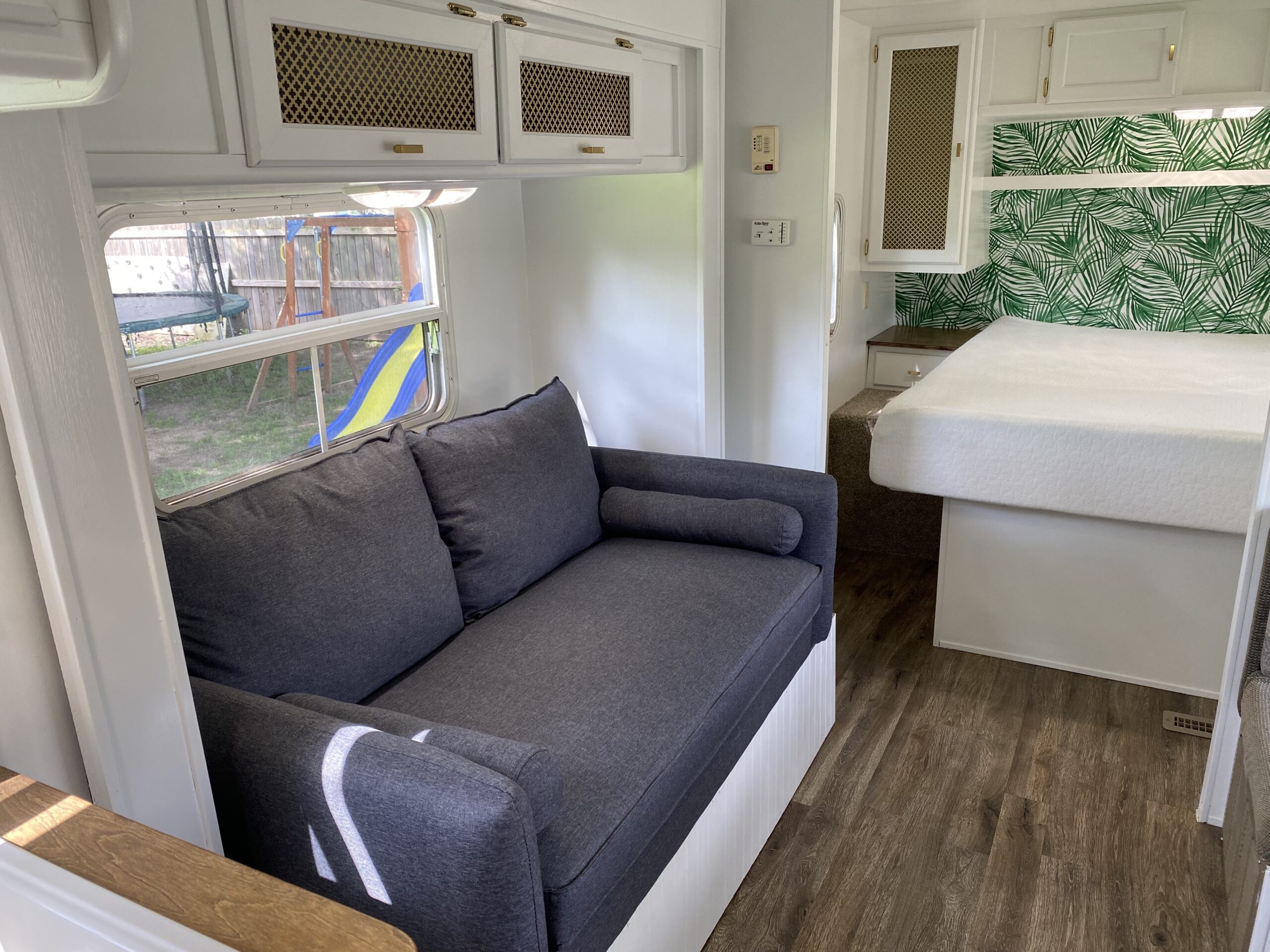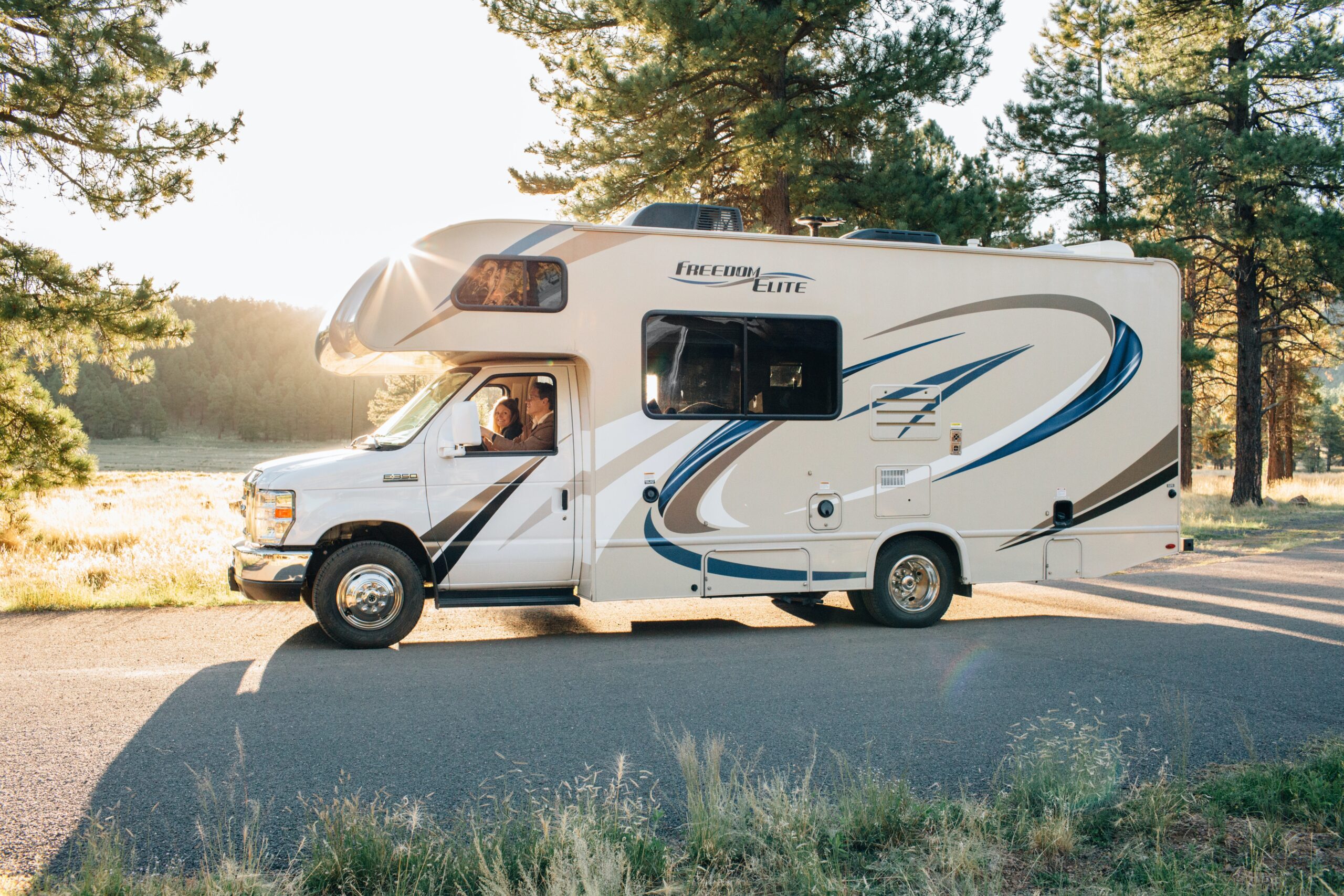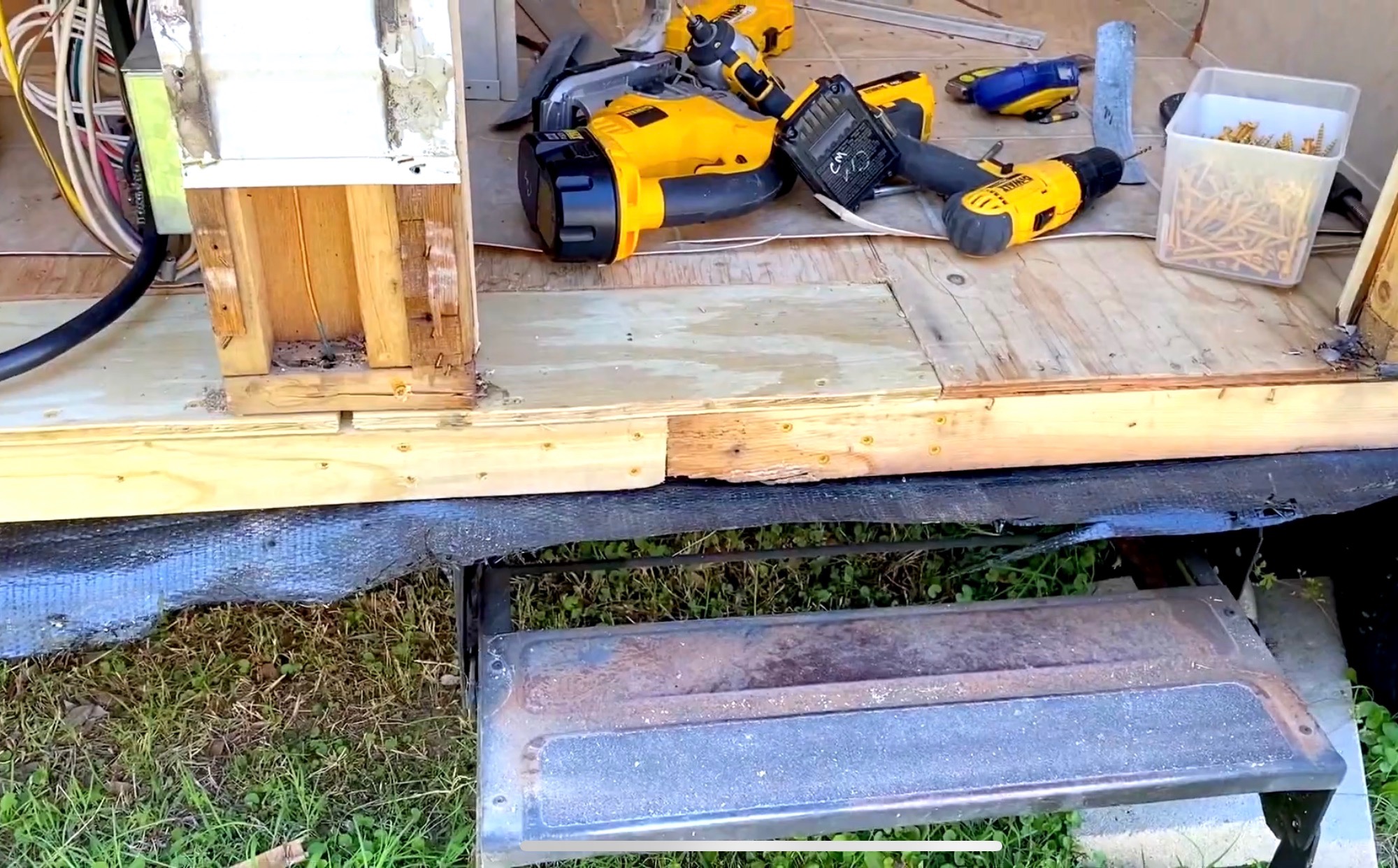Deciding between remodeling an existing RV or purchasing a new one is a common dilemma faced by RV enthusiasts. Both options come with their own set of advantages and disadvantages, depending on factors such as budget, personal preferences, and long-term goals. This article aims to explore the pros and cons of each choice, to help readers make an informed decision based on their unique circumstances.
Remodeling an older RV allows for a personalized and modern look, tailored to an individual’s taste, but the process can be time-consuming and expensive. Alternatively, buying a new RV guarantees a pristine, untouched space free of wear and tear, making it a more straightforward choice for those who can afford it. However, purchasing new poses its own set of drawbacks, such as depreciation and potential age restrictions in certain RV parks.
In this article, we will delve deeper into these considerations, looking at the financial aspects, customization opportunities, maintenance needs, and practical implications of remodeling an old RV compared to investing in a new one. Our aim is to provide a comprehensive guide for those grappling with this decision, ultimately assisting them in selecting the best option for their own RV journey.
Factors to Consider
When deciding whether to remodel an RV or buy a new one, there are several factors to consider. In this section, we will discuss Budget and Expenses, Time and Effort, New RV Vs Used RV, and their Pros and Cons.
Budget and Expenses
One of the primary factors to consider is your budget. If you have enough money, buying a new RV might be the simple answer. However, keep in mind that any renovations you make to a used trailer or RV will also cost you some money. When setting a budget, consider the following costs:
- Purchase price of a new or used RV
- Insurance and registration fees
- Renovation materials and labor
- Maintenance and repairs
Time and Effort
Renovating an RV can be a time-consuming and labor-intensive process. It is essential to consider if you have the necessary skills and patience to undertake such a project. Conversely, buying a new RV means you can enjoy it as soon as you drive it off the lot. However, even new RVs may require some customization to suit your needs.
New RV Vs Used RV
A new RV has its advantages, such as being the first to use it and having a warranty. However, a used RV allows for more personalization and customization, as well as potentially lower prices. A Used RV may also have a more unique character, adding charm to your RV experience.
Pros and Cons
To help with your decision, let’s break down the pros and cons of each option:
New RV
- Pros: Warranty, modern features, minimal wear and tear, less time and effort spent on customization
- Cons: Higher cost, depreciation, may not have as unique a character
Used RV / Renovated RV
- Pros: Personalization, potential for lower prices, unique character
- Cons: Time and effort required for renovation, potential for hidden damage, may not have a warranty
Ultimately, the choice between remodeling an RV and buying a new one depends on your personal preferences, budget, and how much time and effort you are willing to invest.
Remodeling Your Current RV
Renovation Ideas and Projects
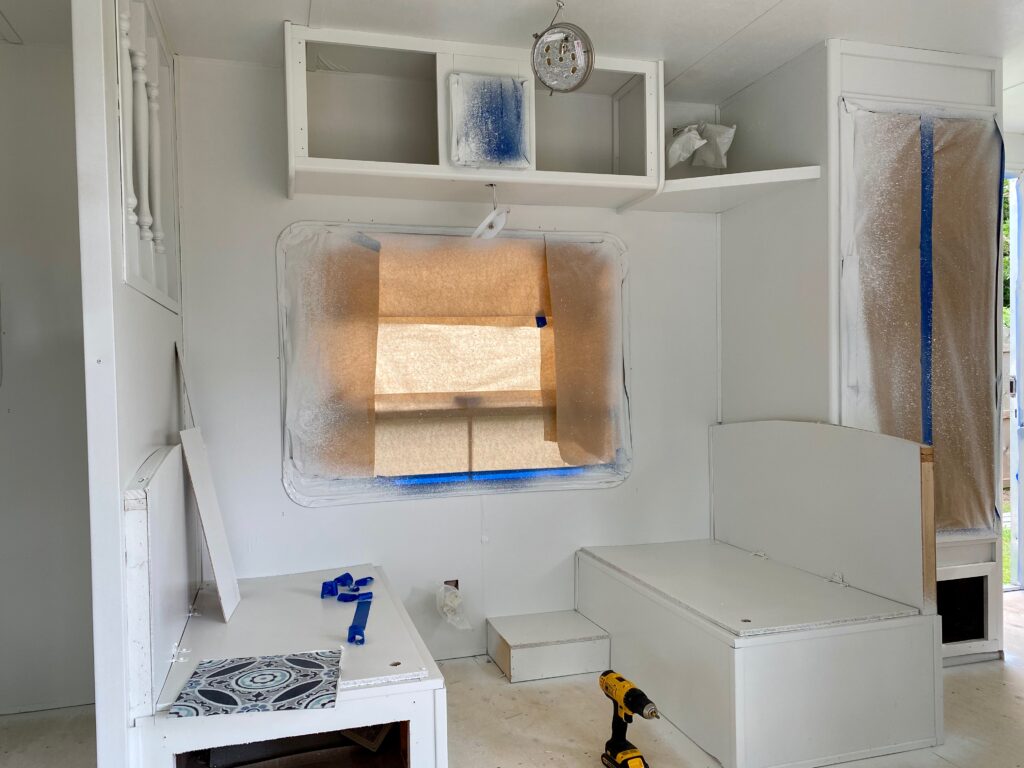
When considering remodeling your RV, think about the different areas that could use improvements, such as paint, wallpaper, windows, flooring, and outdoor amenities. It’s important to prioritize which areas you want to focus on first, taking into account your budget and time constraints. Some cost-effective projects you can undertake include updating the paint, replacing cushions, or adding storage solutions.
Customization and Personalization
One major advantage of remodeling your current RV is the ability to customize and personalize it to your taste. Adding your unique touches to your home on wheels will not only make it more enjoyable to live in but also increase its value. You can add custom decals, reupholster the RV furniture, or even have an office space created to make it more functional for your needs.
Upgrading Appliances and Systems
Upgrading appliances and systems in your RV is another crucial aspect of remodeling. Look at replacing outdated appliances, adding energy-efficient lighting, and updating the electrical system. Don’t forget to check your recreational vehicle’s tires, toilet, and engine, as these need regular maintenance and may need upgrading over time.
Tips for Remodeling
When remodeling your RV, it’s essential to have a set budget and design plan. This helps to ensure that you do not overspend and allows for a more organized project. Be mindful of the overall weight of your travel trailer, as adding too much can strain your vehicle’s engine and suspension. It’s also wise to invest in quality tools and materials, especially if you plan to do most of the work yourself. Additionally, consider consulting with professionals or experienced RV renovators to help you avoid costly errors.
Pitfalls and Mistakes to Avoid
To make the most of your RV renovation experience, it’s crucial to avoid common remodeling mistakes. Many people make the error of starting too many projects simultaneously, leading to delays and overspending. Research potential projects thoroughly and set realistic deadlines to avoid unnecessary stress.
Moreover, be cautious when hiring contractors, making sure to read reviews and check references to ensure you get the best quality workmanship. Finally, avoid overlooking essential maintenance tasks, such as checking for water damage or engine problems, as these can lead to more costly repairs down the line.
In summary, remodeling your existing RV can breathe new life into an older vehicle and make it better reflect your personality and needs. The process of renovation offers numerous opportunities for updating, customizing, and upgrading various aspects of your RV, but it’s vital to approach the project with careful planning to ensure a successful result.
Buying a New RV
Advantages of Purchasing a New RV
Purchasing a new RV comes with several benefits. A brand-new recreational vehicle offers the latest designs, technology, and amenities. Buyers can customize the RV’s features to their liking and enjoy living or traveling with modern comforts. Maintenance tends to be lower for a new RV, as most components will be in pristine condition.
With a new RV, buyers usually have manufacturer warranties that cover repairs or replacements for a specified period. This coverage provides peace of mind and protection for the investment. New RVs also offer an enhanced travel experience, leading to more memorable family bonding opportunities during vacations or road trips.
How to Choose the Right RV
When selecting the right RV, consider your intended use, budget, and preferences. Think about the vehicle size, layout, living space, and storage features that would best suit your travel and lifestyle needs. Research different motorhomes or trailers in the market to find the one that meets your criteria.
Visiting RV dealerships or trade shows enables you to physically inspect various models and ask questions directly to experts. Reading online reviews and discussing RV experiences with other enthusiasts could also be helpful in making an informed decision.
Financing and Insurance Costs
Buying a new RV involves financing and insurance costs. Set a realistic budget for your purchase, and shop around for competitive loan rates and insurance premiums. Financing options vary depending on credit history, down payment, loan term, and interest rates. Keep in mind that a longer loan term may reduce monthly payments but increase total interest costs.
Insurance costs depend on factors such as vehicle type, coverage level, deductible, and personal factors like driving history. Obtaining quotes from multiple insurance providers can help you find the best coverage at the most affordable rate.
Warranty and Maintenance
New RVs typically come with a manufacturer’s warranty, which covers repairs or replacements for certain components during the warranty period. This protection helps mitigate unexpected repair costs while giving buyers confidence in their purchase. Regular preventive maintenance on your new RV, such as oil changes and tire rotations, is essential to keeping it in optimal condition and extending its life.
Depreciation and Resale Value
While new RVs present several advantages, depreciation is a notable drawback. RVs depreciate rapidly, with the most significant decrease occurring within the first few years of ownership. This depreciation rate might affect the resale value if you decide to sell your motorhome or trailer in the future. However, taking good care of the vehicle and maintaining it properly can help slow down depreciation and preserve its value.
In conclusion, buying a new RV has its pros and cons. Evaluate your needs, preferences, and budget to determine whether this investment is right for you. Regardless of your choice, planning and research are key to finding the perfect recreational vehicle for your next adventure.
Case Studies and Real-Life Examples
Successful RV Remodels
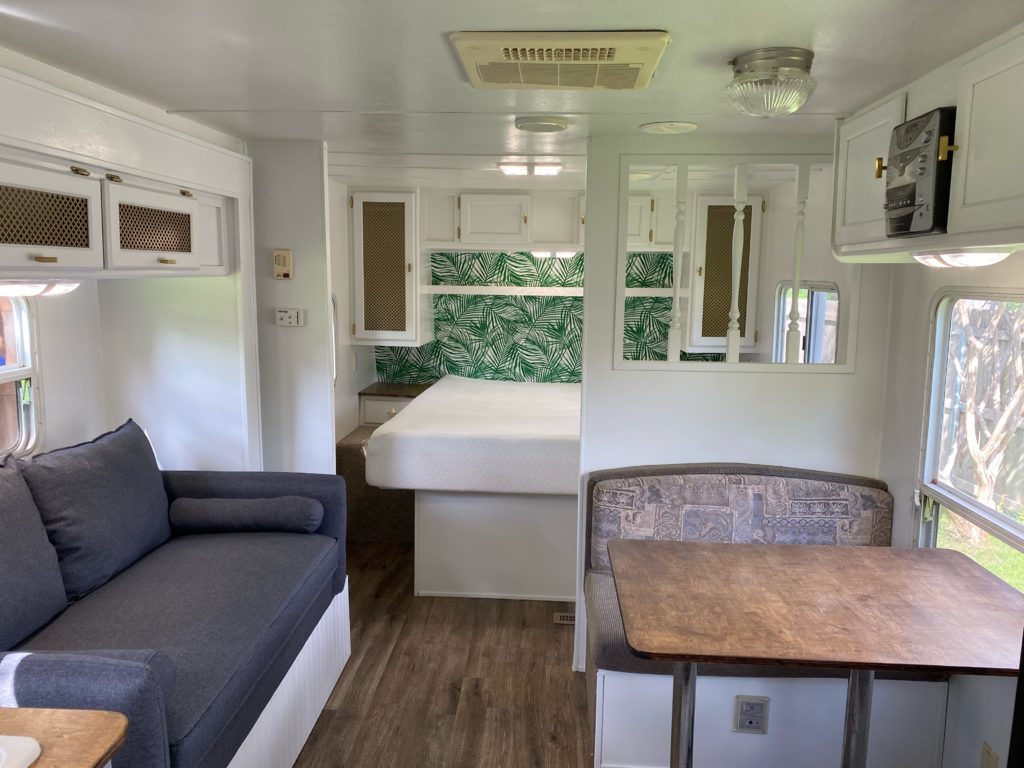
Many individuals and families have successfully undertaken RV remodels to upgrade and personalize their vehicles. One prominent example is a family that transformed their Airstream trailer by implementing modern design elements, creating a cozy and functional living space. They renovated the interior using new furniture, flooring, and a fresh coat of paint.
Another story involves a couple who decided to remodel their travel trailer into a comfortable home on wheels. They tackled various projects, such as installing solar panels, upgrading the kitchen, and creating a custom workspace. These renovations allowed them to enjoy their travels while maintaining the comforts and amenities of a traditional home.
New RV Owners’ Experiences
Purchasing a new RV can be an exciting and rewarding experience for many people. Some new RV owners have found that buying a new vehicle provides them with a blank canvas, allowing them to tailor the space to their specific needs and preferences. Additionally, new RVs often come with warranties and updated technology, giving owners peace of mind during their travels.
However, new RVs can also be expensive, while used RVs still have the potential to be reliable, and with some renovations, they can become personalized and functional spaces.
Lessons Learned and Tips
When considering whether to remodel an existing RV or buy a new one, it is important to consider several factors:
- Budget: Renovating a used RV can be more cost-effective than buying a new one. However, be sure to account for potential hidden costs, such as unexpected repairs or replacement parts.
- Personalized touch: If you enjoy DIY projects and have a vision for your ideal RV layout, remodeling might be the right decision for you.
- Time and effort: Remodeling an RV can be time-consuming, especially for families looking to get on the road quickly. Sometimes, buying a new RV is a more efficient option.
- Warranty and support: New RVs often come with better warranties and customer support, but this should be weighed against the cost savings and potential benefits of remodeling an older vehicle.
Ultimately, the decision to renovate or buy new will vary depending on individual circumstances and priorities. It’s essential to consider the pros and cons of each option and make an informed decision that suits your specific needs and preferences.
Conclusion
In deciding whether to remodel an existing RV or buy a brand-new one, several factors must be taken into account. Each option has its own set of advantages and disadvantages, which should be carefully weighed before making a decision.
Renovating an old RV can be a cost-effective option, especially for those with a limited budget or a desire for a personalized and modern look. Additionally, it allows the owner to avoid the immediate depreciation that comes with purchasing a new RV.
On the other hand, buying a new RV offers pristine conditions and no wear and tear, as well as the assurance that it meets the latest industry standards and campground age restrictions. Furthermore, new RVs often come with warranties and the possibility for financing options, making it a potentially more attractive choice for some buyers.
Ultimately, the decision to remodel an RV or buy a new one depends on individual preferences and financial circumstances. Taking the time to consider the pros and cons of each option will help ensure that the choice made is the best fit for the owner’s lifestyle and needs.

